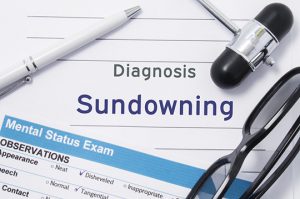It’s inevitable. As a nurse, you will witness death. You will sit with a dying patient; you will support a grieving family. You’ll cry at times with them, as well as with co-workers and by yourself.
One of the hardest aspects of nursing is dealing with death: knowing what to say to someone whose life is ending and how to comfort those left behind. Then there is caring for yourself when death can happen daily, and you’re expected to continue to provide constant care without a chance to pause and reflect.
Although you may never become accustomed to death — and experts say you shouldn’t — you can learn to handle your feelings in healthy ways. You can also learn to help others who are experiencing loss: families, friends, and colleagues.
Learn the vocabulary
Here is a useful table of terms that apply to situations around death.
| Term | Meaning | Duration |
| Anticipatory grief | Mourning before the loss occurs. Worry about what life will be like without them | Depends on how long before the death happens, can last for years |
| Bereavement | The experience of loss | Can be combined with or overlap with grief |
| Grief | Internal indicators of loss: sadness, crying, yearning, insomnia, self-neglect, social withdrawal | Frequently lasts about a year, but there is no definite timeline |
| Mourning | Personal or public ways to grieve: funerals, wakes, rituals, cultural behaviors | Months to years |
| Complicated grief | Unusually long and protracted grief that can be disabling | Can last for years |
| Disenfranchised grief | Grief that is not acknowledged or supported by society | Months to years |
Grief is the reaction to a loss. It can be an overwhelming emotion for some people, causing deep pain. It’s a natural response that can occur many times during a lifetime, including death:
- Loss of a relationship or job
- Loss of health or function
- Loss of a home or cherished possession
- Loss of income or financial stability
- Loss of a plan or dream
As a nurse, you will mostly encounter loss and grief associated with physical death, although your work may include helping others who are experiencing the other types of grief.
Anticipatory Grief: Watching and waiting
Feeling the sadness of someone who is declining or may soon die is extremely painful. It can happen to you in your personal life, to a patient’s family, or to the patient themself. Anticipatory grief is an intense emotional response that is experienced before a true loss.
WebMD describes it well: “Even though the loved one you've been caring for is still alive, you may have already started feeling the weight and pain of their loss.” Signs and symptoms of anticipatory grief can include:
- Anxiety
- Fear or dread
- Sadness or depression
- Anger or resentment
- Mood swings
- Intense concern
- Visualizing the death
To help others — or yourself — cope with anticipatory grief, experts recommend some steps.
- Allow for feelings. The emotions around death are natural, so don’t deny them. Use this time to promote conversation: Talk about memories. Resolve issues. Find out about end-of-life wishes. It is a sad thing but can be meaningful. People who die suddenly don’t get the gift of telling others that they are loved and saying good-bye.
- Learn what to expect. Find out what is likely to happen as death approaches. If the patient is in hospice, they and their family will be supported. If not, you can explain what happens at the end of life as the body shuts down, and what comfort measures will be given to keep the patient comfortable and pain-free.
- Find someone to talk to. Encourage the patient and their family to join a support group with others going through the same experience. Groups are now available in person and online. Being able to express feelings — and frustrations — can help people know they’re not alone.
- Make memories. Although you may all feel sad, the person is still alive. It’s not too late to do things together. If physical activity isn’t possible, talking about the past or looking at photos can create a sense of intimacy and togetherness. Celebrate as much as possible. You will never regret any effort that you put into the final days of their life.
- Live in the moment. Don’t let the future interfere with today. Continue with your routine as much as possible. This includes jobs, social gatherings, volunteering, hobbies. Don’t let the impending loss keep you from enjoying today. It’s okay to have fun and laugh — you will look back on this time and be glad that you didn’t waste it.
What a nurse can do when death occurs
Even experienced nurses can struggle when a patient dies. Nurses are trained to provide care and help patients get better. They can feel helpless when someone doesn’t survive; they may have intense feelings…but they also need to help the family.
Here are some tips that can be useful when a patient has died.
- There’s no magical “right” thing to say. The family may look to you for support, but you can’t come up with the best way to ease their loss. However, please never say, “I know how you feel.” You don’t. So don’t try and pretend you understand. It’s fine to let them know that you don’t know what to say. “I wish I had the right words, please know that I care.”
- Ask what they need. This is so basic and yet often neglected. Maybe they haven’t eaten in hours and could use nourishment, even if it’s the crackers in the unit kitchen. Offer water, juice, coffee. Maybe they want a private place to sit for a while. Maybe they need access to a phone or even for you to place a call for them.
- Prepare them for viewing. After the death, families will usually want to see their loved one and sit with the deceased patient. After providing post-mortem care, spend a few minutes to describe how the body will look and feel. Place some chairs in the room in case they need or want to sit.
- Answer their questions. Depending on the circumstances, the family may have questions. If you’re able to answer, go ahead. If not, try to locate the best person to talk with them, or let them know you will get the answers and get back to them. They may wonder what happens next or what the process is. For example, the deceased patient may be a medical examiner’s case and require an autopsy.
- Provide written information. Immediately after a death, even if it’s expected, people can go numb. They may act and speak normally, but their minds are blurry. If you can give them written instructions, phone numbers, or resources, they will be grateful when they go home and realize they didn’t remember anything they were told.
You can’t pour from an empty cup
No matter how many times you care for a patient at the end of their life, or how natural death may be, it’s always a time of sadness when another human passes away. Nursing education focuses more on skills and tasks than the importance of self-care, so you may wonder what to do when the number of patient deaths begins to weigh you down.
- Don’t deny or ignore. The grief that accompanies the death of a patient can feel overwhelming. We learn that we should care for others before ourselves, so we quickly return to our shift and patient load. But in order to be emotionally resilient, we must acknowledge and confront our reactions. This is how we avoid burnout and continue to give compassionate care.
- Take care of YOU. Grief has physical consequences. The stress hormones that are released can cause headache, back or joint pain, and stiffness. Grief can weaken the immune and digestive systems. It can also lead to fatigue and sleep problems. Over time, it can make you sick. For every nurse, it’s essential to eat well, exercise, and get adequate sleep. Do what you love: read, garden, hike, craft, cook…it’s all good.
- Debriefing is essential. Co-workers are good for talking about your experiences. They’ve had similar situations and emotions, so they understand what you’re going through. If your unit has regular debriefing meetings, make a point to attend and participate. Ask your supervisor about services that might be helpful, such as a counselor, social worker, or organization workshops. If there’s an EAP, take advantage of it.
- Leave it at work. You may find yourself thinking about patients and their families when you’re away from the job. It’s important to establish boundaries between personal and professional lives. Use commuting time to disengage and mentally prepare to go home. Shower as soon as you arrive home to “wash off the day” and settle into your routine. Focus on self-care and being with others that don’t know what your job entails.
- You make a difference. The reality is that everyone dies. It’s not a failure. As a nurse, you have the unique opportunity to help make the transition from living to whatever you or the patient believes comes next. Your ability to offer care and compassion to the patient and their family is meaningful for all of you.
Every patient matters, so wherever they are on life’s journey, nurses give the best possible care. Take a moment to acknowledge each death. Some deaths are more difficult than others, so do what you can to heal in the way that’s best for you. Remember that you can’t pour from an empty cup.
“It takes strength to make your way through grief, to grab hold of life and let it pull you forward.” (Patti Davis)
 By
By 



